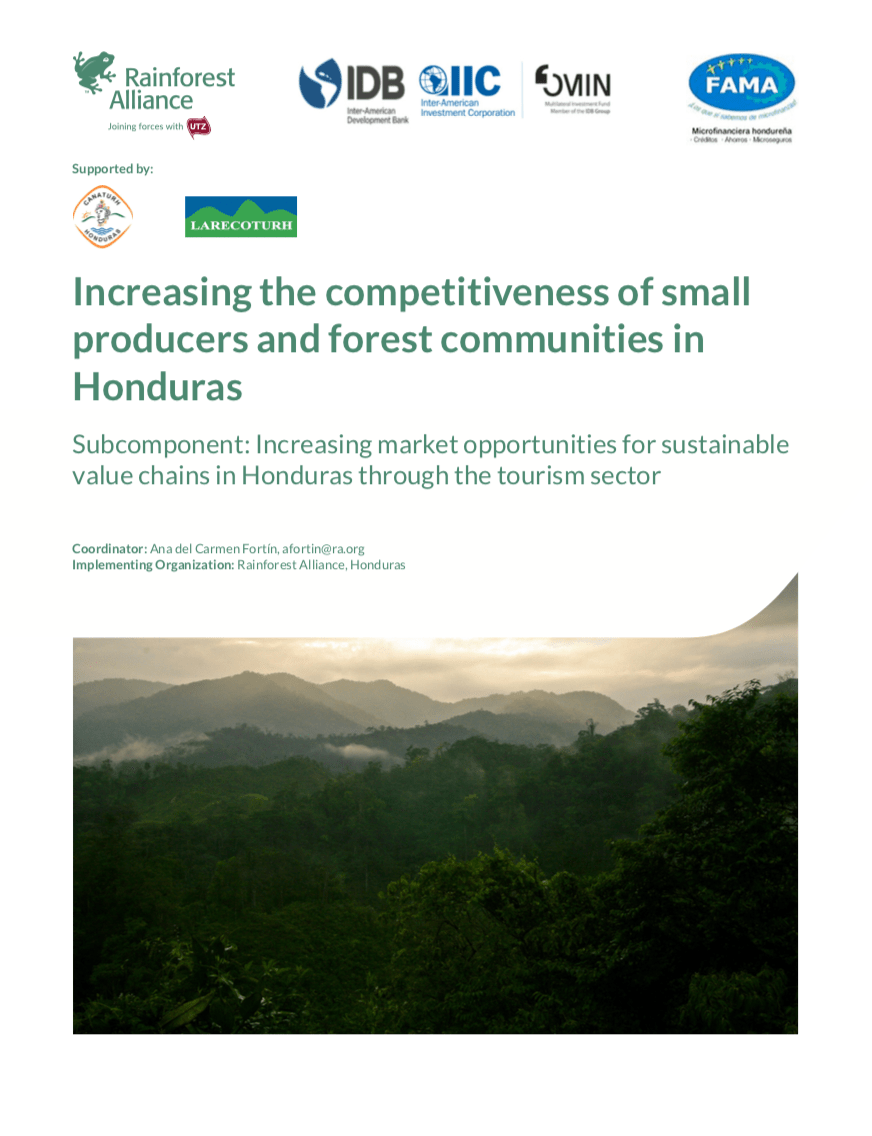Increasing the Competitiveness of Small Producers and Forest Communities in Honduras
In the Mesoamerican region, the Rainforest Alliance develops projects that promote the production and sale of sustainable products from the forest and agricultural activities, integrating men and women into productive activities for the generation of economic, social, and environmental benefits.
Its main objective is to increase the competitiveness, sustainability, and access to markets of agricultural and forestry operations, and through the principle of “learning by doing,” the beneficiaries of these projects have an active participation in new investments and trade for the region.
In Honduras, the Rainforest Alliance has been providing technical assistance since 2005 to rural communities linked to the protection and sustainable use of the forest, especially in the region of the Rio Plátano Biosphere Reserve (RPBR). Initiatives have also been strengthened with non-timber products, like xate, masica, and cocoa. In June 2015, the organization expanded its sectoral approach towards one based on the conservation and improvement of livelihoods in productive landscapes, thus opening the range of opportunities to support different value chains in agriculture, forestry, and tourism and to cover cross-cutting issues such as climate, education, and research. This approach has allowed the Rainforest Alliance to expand the beneficiary regions in Honduras and to venture into various sectors.
This project aims to increase the competitiveness of forest communities and small producers of cocoa, coffee, rambutan, and timber products; it contributes directly to the national-level efforts aimed at achieving the Sustainable Development Goals (SDGs), particularly those related to the national framework and strategy to advance SDG-11: Responsible Production and Consumption.
